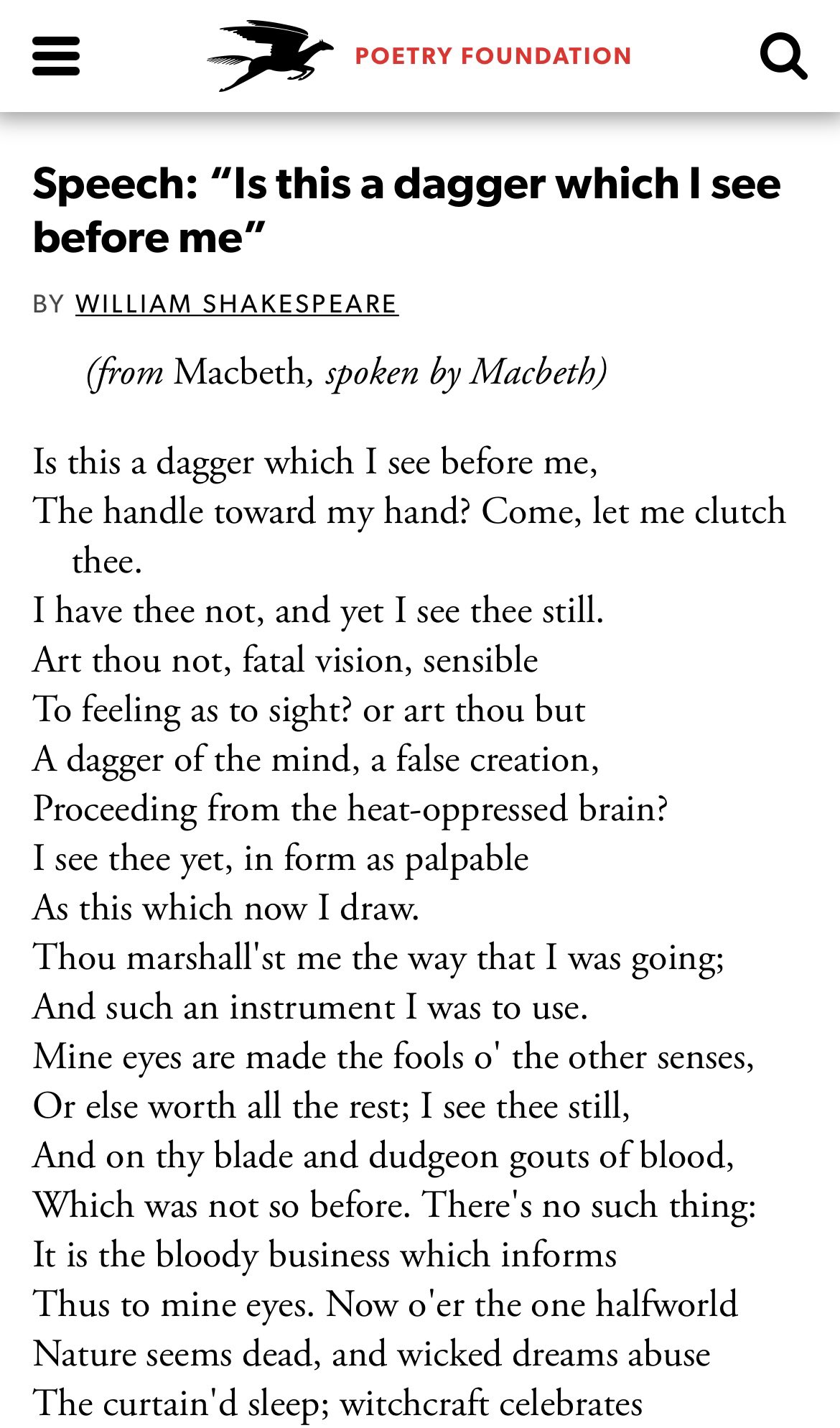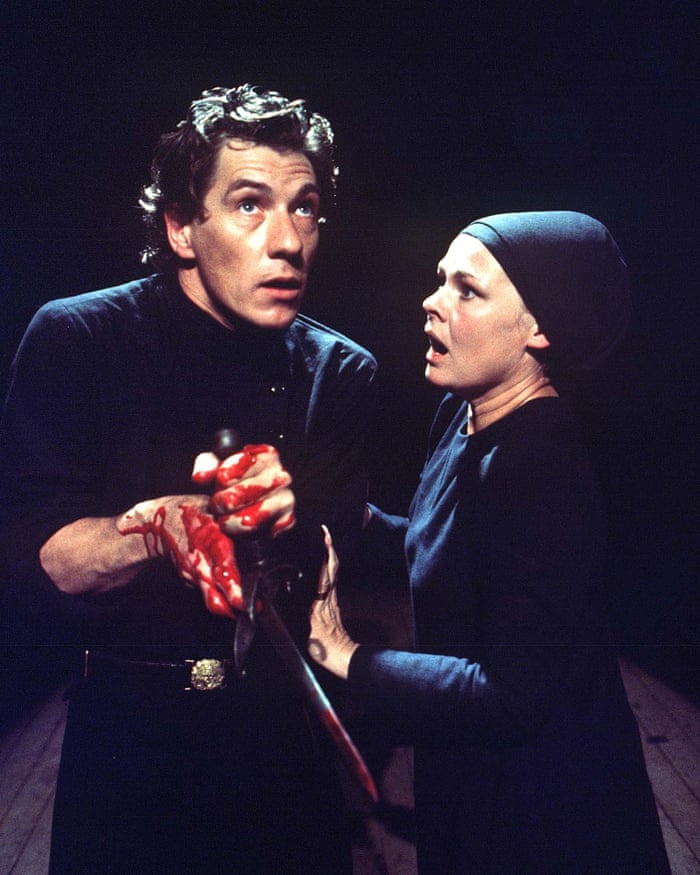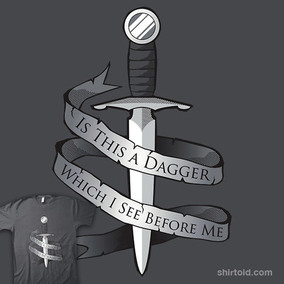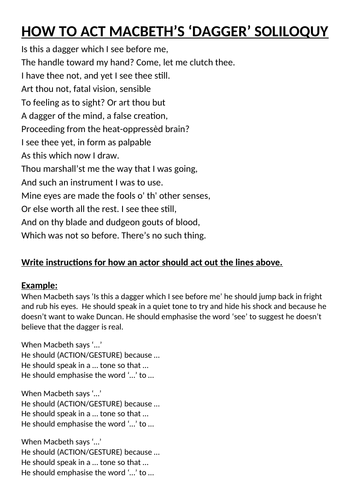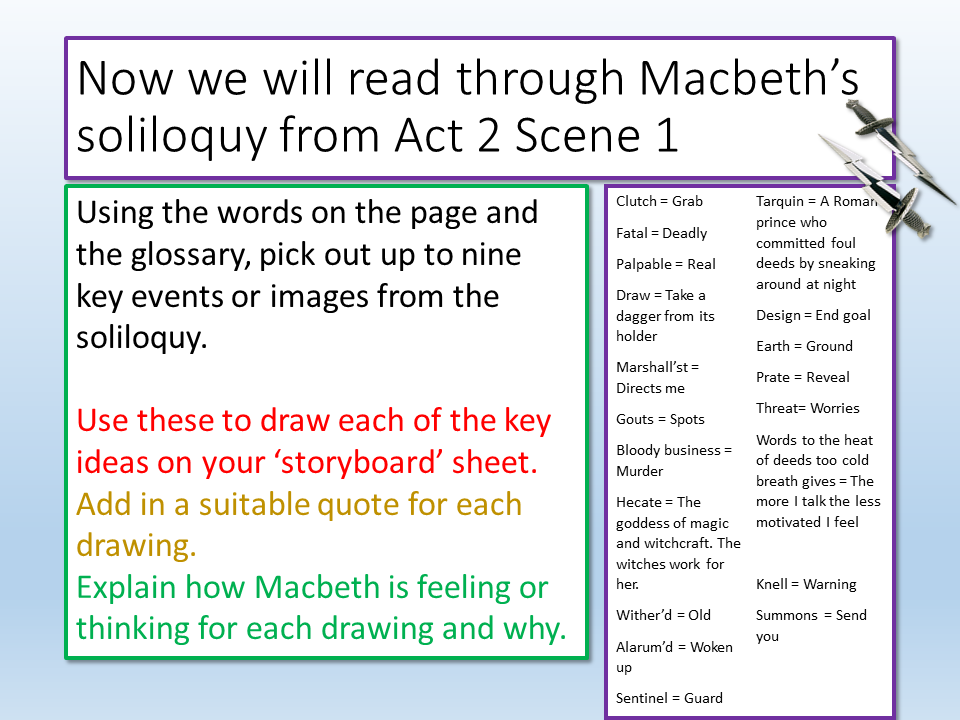"Is this a dagger which I see before me, The handle toward my hand? Come, let me clutch thee. I have thee not, and yet I see thee still. Art thou not, fatal vision, sensible To feeling as to sight? Or art thou but A dagger of the mind, a false creation, Proceeding from the heat-oppressed brain?"
These lines, spoken by Macbeth in Shakespeare's play of the same name, represent a turning point in the character's descent into madness and guilt. The image of the dagger serves as a symbol for Macbeth's inner turmoil and his descent into murder and betrayal.
At the beginning of the play, Macbeth is a respected and brave warrior who is hailed as a hero. However, after being convinced by his ambitious wife and the prophecies of three witches, he murders King Duncan in order to seize the throne. This act sets off a chain of events that leads to Macbeth's downfall.
As the play progresses, Macbeth becomes increasingly paranoid and guilt-ridden. He is haunted by the ghosts of those he has killed, and the image of the dagger represents the violence and destruction that he has caused. It is a manifestation of his guilt and his inability to escape the consequences of his actions.
The dagger also serves as a metaphor for the way in which Macbeth's own ambition and desire for power have led him down a path of destruction. He is torn between his own desire for power and the knowledge that his actions are wrong. This internal conflict is reflected in the lines, "Art thou not, fatal vision, sensible / To feeling as to sight?" In other words, Macbeth wonders whether the dagger is a real object or simply a product of his own troubled mind.
Ultimately, the "is this a dagger" speech reflects Macbeth's descent into madness and guilt as he struggles with the weight of his own actions. It serves as a powerful reminder of the dangers of unchecked ambition and the destructive power of guilt.

